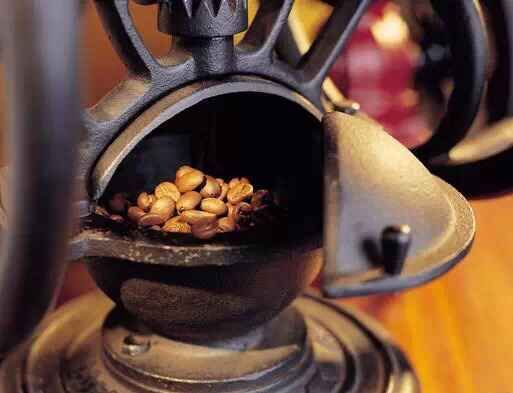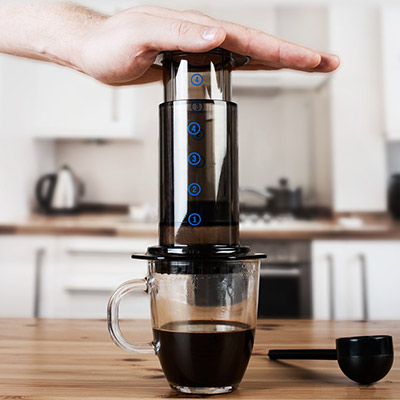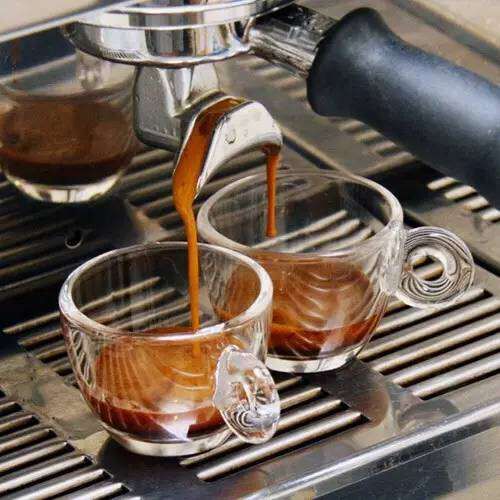Coffee bean grinding-what kind of cooking equipment is suitable for which kind of grinding degree?

First, what is the degree of coffee grinding?
Coffee grinding degree: simply speaking, it is the degree of coffee powder grinding thickness, which usually refers to the corresponding scale on the bean grinder. Take the Taiwan-made Little Eagle bean grinder, for example, the siphon pot Chen Lei makes a grinding degree of 3, that is to say, 3 scales of coffee powder corresponding to the thickness is used on this bean grinder.
As for the degree of grinding, the bean grinder follows the same standard, that is, the larger the number of the bean grinder, the thicker the particles of coffee powder.
Second, how does the degree of grinding affect the taste of coffee?
That is, when the degree of grinding is greater, is the taste of coffee more sour or bitter? On the contrary, when the degree of grinding, how does the taste of coffee behave?
From now on, we can do experiments, but the test results are different, entangled!
The main results are as follows: 1. When using traditional pot tools, such as French pressure pot, siphon pot, manual brewing and electric drip filtration to make the above experiments, it is concluded that the greater the degree of grinding of coffee, the more acidic the taste of coffee, on the contrary, it tends to be bitter.
2. When using the semi-automatic coffee machine to make the experiment, we got a different answer: when the degree of grinding is greater, the coffee tends to be bitter, on the contrary, it tends to be sour.
For the above two different results, who is right and who is wrong?
In fact, both answers are correct, but the two focus on different amounts of attention. In theory, the smaller the degree of grinding of coffee, the finer the coffee powder, the easier it is to extract coffee, and under the same factors, coffee will be extracted more fully, so the resulting coffee tends to be over-extracted, that is to say, the taste of coffee tends to be bitter.
However, as far as the Italian coffee machine is concerned, we tend to focus on the time rather than the output of the cup, for example, when the grinding degree of the bean grinder is fine, the amount of coffee is too small at the same time. The reason is that when the coffee powder is fine, the gap between the coffee powder will become smaller, and it will take more time for the water to pass through the coffee powder, resulting in a small amount of coffee in the same time.
The output of coffee is too small, which means that the extraction of coffee is insufficient, which will inevitably lead to insufficient extraction of coffee, and eventually the taste of coffee will be acidic.
In the second experiment, if we require that the cup output be 30ML regardless of whether the grinding is big or small, regardless of the time, the final result will be normal again. The less the coffee is ground, the more bitter the coffee tastes, and of course, it takes a lot longer.
III. Balance
In fact, coffee production is about a balance. When we can grasp this balance, we can control the taste of coffee accordingly.
That's all for coffee grinding. it looks a little long, but I really hope these interesting experiments will be helpful to you who like coffee. Chen Lei is willing to share everything about coffee with you.
Reprint: Zhiyu Coffee
Important Notice :
前街咖啡 FrontStreet Coffee has moved to new addredd:
FrontStreet Coffee Address: 315,Donghua East Road,GuangZhou
Tel:020 38364473
- Prev

Brewing reason and usage of coffee brewing method-Philharmonic pressure reverse pressure method
First, why use the reverse pressure method? Philharmonic pressure coffee production is usually divided into positive pressure method and reverse pressure method, positive pressure method, Chen Lei will not talk about it, today only talk about the production method of reverse pressure. The reason why we recommend the reverse pressure method to make coffee is that when making coffee under positive pressure, the water leakage is serious, and the coffee liquid has almost run out before the pressure is put down, so this situation will lead to coffee.
- Next

What is the reason for the slow flow of espresso? How to improve the slow flow rate of coffee liquid?
What is the flow rate of coffee? The flow rate of coffee refers to the dirty speed in the process of making espresso. The flow rate is too fast or too slow, which has a great impact on the taste of coffee. The reason that affects the flow rate of coffee is that the gap between coffee powder particles is too large or too small, which will affect the flow rate of coffee. Second, what is the reason for the slow flow of espresso? 1
Related
- What is the meaning of lactic acid fermentation with coffee bean treatment?
- How to judge the state of foam by sound?
- How does the latte pull out the unicorn pattern? Come to get for a little trick to improve the flower pull!
- Will flower pulling affect the taste of the latte?
- Do you know the history of coffee?
- The difference between honey treatment and sun washing what is raisin honey treatment?
- What kind of milk can a novice use to make coffee foam to keep the foam longer? The correct method and skills of milking tutorial sharing
- Why do washed coffee beans taste sour? Flavor characteristics of washed Coffee
- Introduction to the skill of how to practice the size and height of water injection around the circle of hand-brewed coffee
- How do beginners practice coffee flower drawing from scratch?

